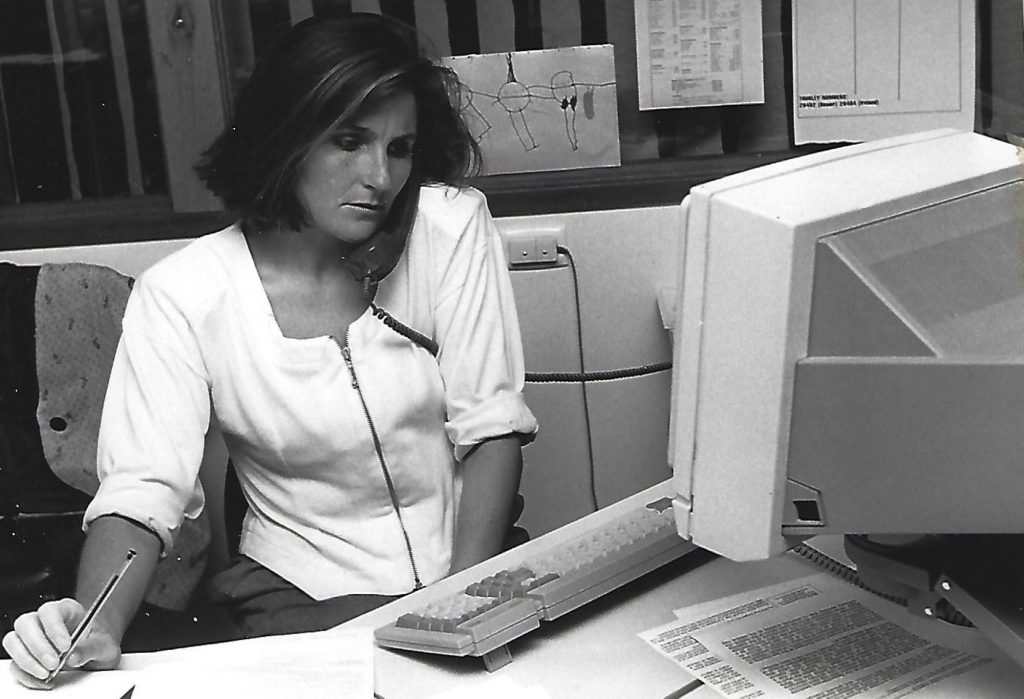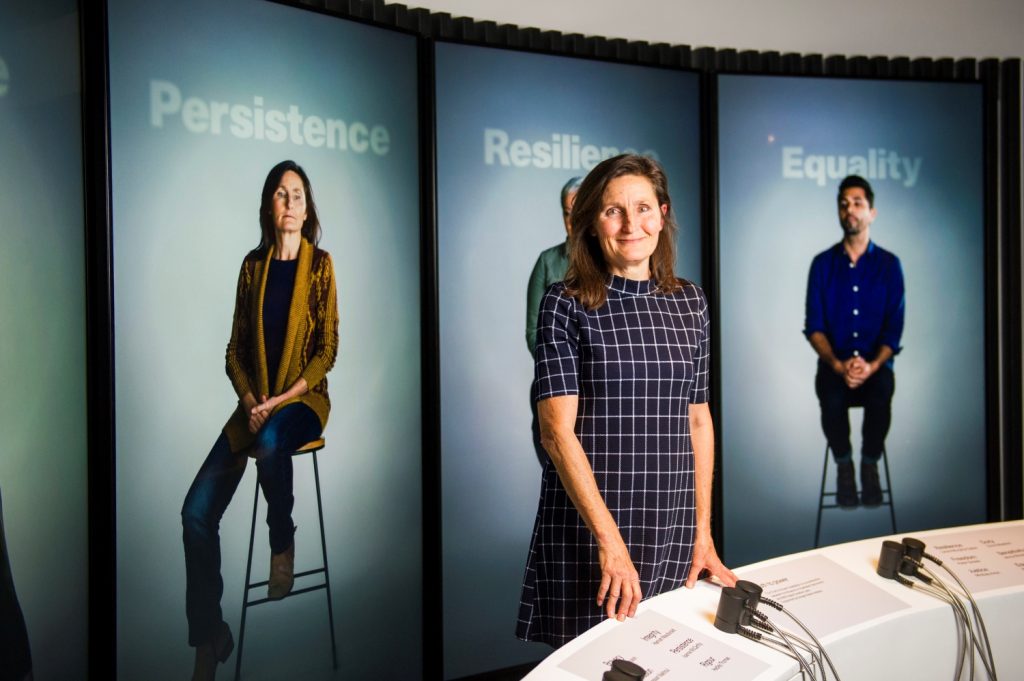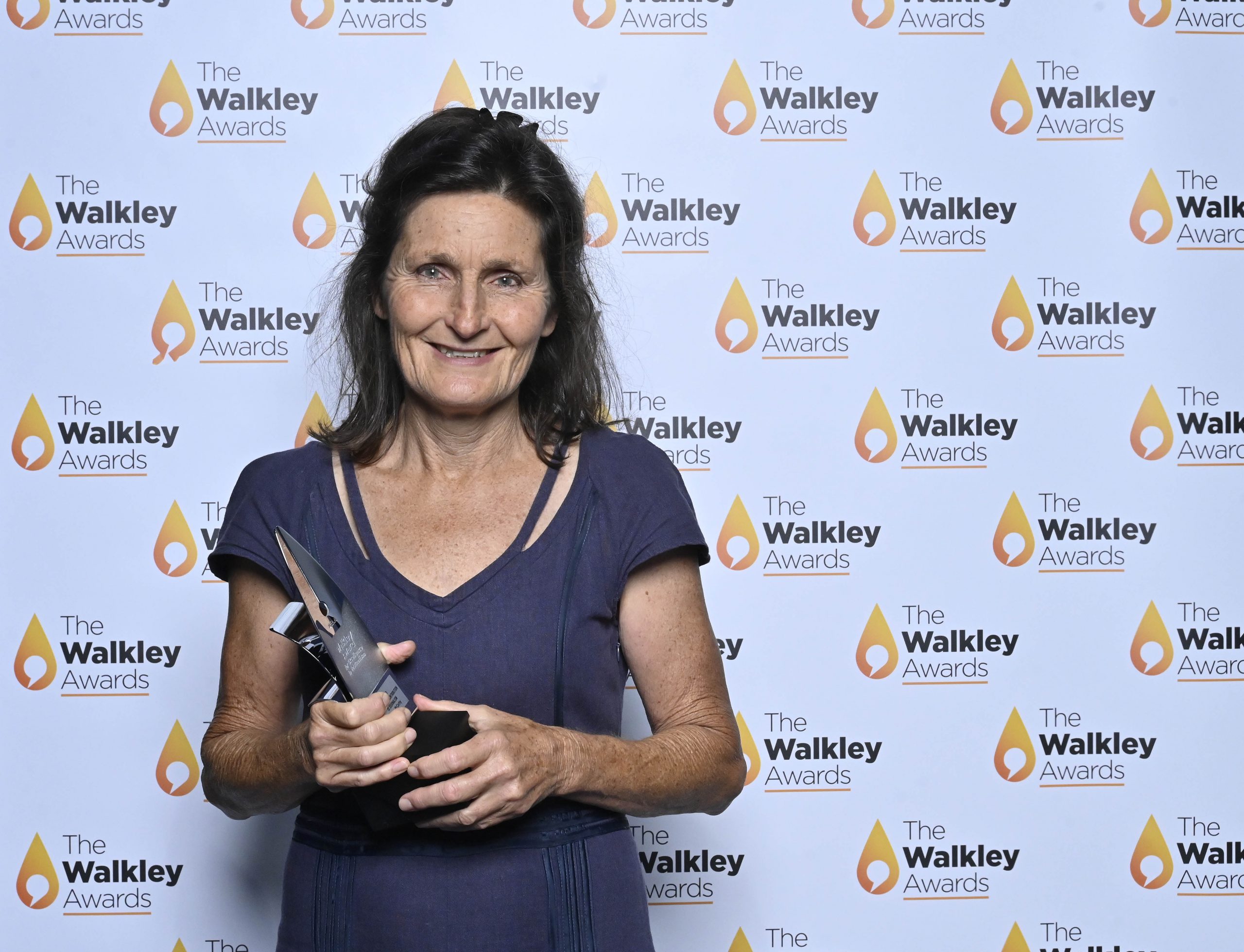
In 1980 Joanne McCarthy became the Gosford Star’s first journalism cadet – based on no interview and, she has said in the past, “quite possibly the world’s worst job application.”
It was a humble beginning for what was to come in this tenacious reporter’s constant search for justice on behalf of the victims of sexual abuse by Catholic clergy in the Hunter region of NSW, which led to an inquiry and a Royal Commission ordered by the then Prime Minister, Julia Gillard.
The eldest of 11 children in a large Catholic family from the Central Coast – “My parents were enthusiastic practitioners of the rhythm method,” she says wryly – she completed a Bachelor of Arts degree through the University of Newcastle’s Central Coast campus, and found the research skills she learned were invaluable when a random phone call in 2006 caused her to start researching troubling stories of historical child sexual abuse in the Hunter.
“It is a very complicated, legally challenging and emotionally demanding area,” McCarthy says. In 2012 she won the Graham Perkin Australian Journalist of the Year Award, and in 2013 a Gold Walkley for her body of work for The Newcastle Herald, the regional newspaper she worked for between 2002 and 2020. As well, she won the Gold Kennedy Award for NSW Journalist of the Year and the Sir Owen Dixon Chambers Law Reporting of the Year Award. During her 18 years with The Newcastle Herald, McCarthy wrote more than 1,000 articles on Catholic Church child sex abuse cases under her headline “Shine the Light”. In 2015 she was awarded an honorary doctorate from the University of Newcastle, and in 2022 she received an Order of Australia.

McCarthy has always had a clear and unwavering focus. “I seem to have gravitated towards investigating failed systems and failed institutions,” she says, “particularly where women and children pay the price.”
In 2017 she received the inaugural Walkley Public Service Journalism award for three years of work investigating the pelvic mesh scandal and the health system’s failure to protect women from being used as, she says, “human guinea pigs”. The work included confirming Australia’s crucial early role in promoting pelvic mesh devices and the lack of transparency within the health system that led to catastrophic outcomes for many women. McCarthy’s work contributed to an Australian Senate inquiry into pelvic mesh devices and an apology to the women from the then Federal Health Minister Greg Hunt in 2018.
McCarthy believes her gender, age and career as a regional journalist were essential factors in her focus on the two issues. “I am a woman, born in 1960. I grew up in a society whose structures, systems and institutions were established by men over centuries, and where women’s voices were marginalised or not heard,” she says. “I was raised Catholic in an era and in an area where the church and its representatives were whispered about but not overtly challenged.”
The clear message from that church to the teenage McCarthy was that she should be limited by her gender. “I could not, and should not lead. However, I was the eldest in a large noisy family, and so I was a leader without even trying. It didn’t take much to challenge the church once the evidence was clear. Institutions are not much more than boys’ clubs that can absolutely change when forced,” she says. “Look how quickly the Catholic Church was able to discard its ‘sacred’ traditions when there was a pandemic.”
In 2020 McCarthy signed off from her journalism career after 40 years in a final column in The Newcastle Herald. “In the end it was the moral cowardice of too many people in power that finished me,” she says. “But despite the toll I would do it all again in a heartbeat.”
By Candida Baker


